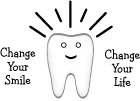Your Oral Health Questions – Answered
Your teeth can reveal a lot about your whole-body health. Research has linked the quality of your oral health (and poor oral health, in particular) to diseases such as diabetes, heart disease, cancer, stroke, and autoimmune disorders. While most Americans brush or floss at least some of the time, such research highlights the importance of regular brushing and flossing: at least twice a day for brushing and once a day for flossing. With a focus on good oral hygiene, the following is a list of questions we often receive from our patients. The answers may surprise you.
Is there a right way to brush? Yes, there is a “right” way to brush your teeth. Hold your toothbrush at a 45-degree angle to the gumline, and apply gentle pressure using a combination of back-and-forth and up-and-down strokes. Brushing should last approximately two minutes: 30 seconds for each quarter of your mouth.
Which is better: electrical or manual toothbrushes? Although studies provide mixed results, most dentists believe that electrical toothbrushes have an edge over their manual counterparts. If used correctly, electrical toothbrushes can prevent you from brushing too hard and not long enough (most include a built-in timer).
When is the best time to floss? Most dentists actually wish their patients would floss twice per day. However, for the vast majority of patients who only floss once per day, the recommended time to floss is at night, prior to bed. By flossing before bed, you remove food particles that would have otherwise contributed to plaque formation while you sleep.
How can I get rid of bad breath? Research shows that patients can improve their bad breath (halitosis) by as much as 75 percent by removing the bacteria and residue that builds up on the tongue. A “tongue scraper” (available in the pharmacy or health department of many retailers) can help with the removal of such residue. If you have persistent bad breath, see your dentist.
As I get older, it seems like more food gets stuck between my teeth. Why does this happen? As we age, our enamel wears down, causing your teeth to get smaller and the spaces between your teeth to get bigger. Bigger spaces mean food is more likely to become caught between the teeth. Eroding enamel can also make your teeth more sensitive. If you experience tooth sensitivity, see your dentist.
Can I tell if I have a cavity? Only sometimes can patients tell if they have a cavity. Pain or sensitivity in just one area, or a brownish stain on top of the tooth, may be signs of a cavity. However, the only way to be sure is to visit your dentist for a professional exam.
Do I really need to go to the dentist twice per year? Yes, twice a year cleanings and check-ups are essential in maintaining good oral health. Waiting too long between visits allows more time for plaque you may miss while brushing and flossing to sit and harden on your teeth. If you do have a cavity, waiting too long to visit the dentist may allow the cavity to progress and affect a nearby nerve, resulting in a costly root canal. Frequent visits also give your dentist more opportunity to spot signs of illness that may affect your whole body.
Are whitening treatments being offered in malls, tanning salons, and spas safe? Such treatments may be safe, but only if administered by a dental professional. An untrained person could end up damaging your teeth, and many operators are selling products that have not been proven safe or effective. Some states, such as Tennessee and Alabama, have banned whitening kiosks unless they are operated by a licensed dentist. If you do opt for professional teeth whitening, consult your dentist for a list of professional, proven products and techniques.


